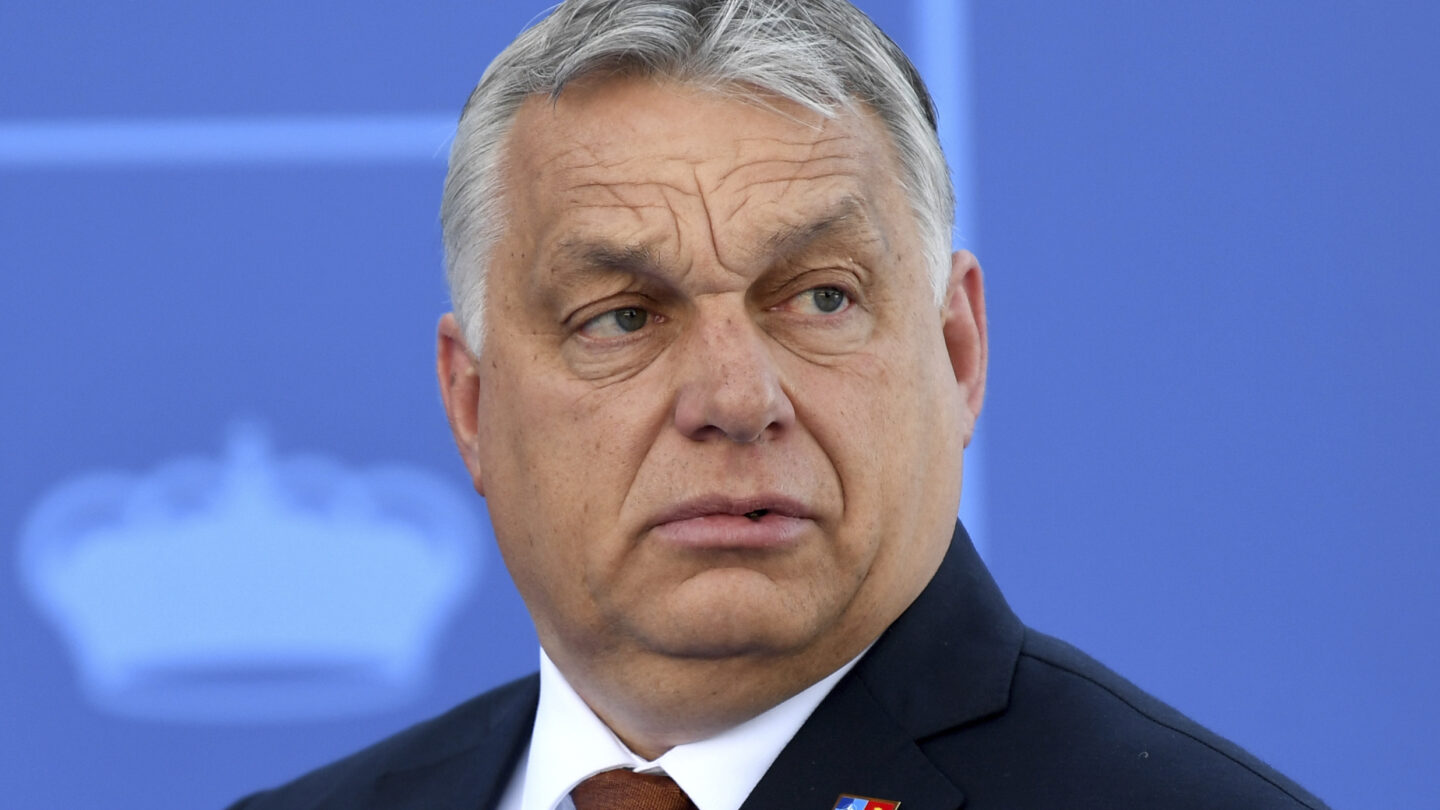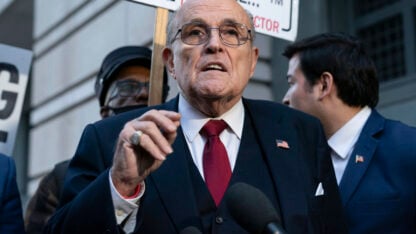Hungarian Prime Minister Viktor Orban is expected to receive a big welcome in the U.S. on Thursday from conservative admirers barely a week after the backlash at home and in Europe over anti-migrant remarks that one of his closest associates compared to Nazi rhetoric.
Orban’s headline slot at the Conservative Political Action Conference in Dallas, one of the nation’s largest gatherings of conservative activists, has raised concerns about Republicans embracing an autocrat who has been criticized for undermining democratic institutions and consolidating power in his own country.
Other speakers include former President Donald Trump, Republican Rep. Marjorie Taylor Greene of Georgia and Republican candidates fresh off GOP primary election victories Tuesday.
Orban’s invitation to CPAC reflects conservatives’ growing embrace of the Hungarian far-right leader whose country has implemented hardline policies against immigration and LGBTQ rights, and is governed by single-party rule. Orban also is considered the closest ally in the European Union to Russian President Vladimir Putin.
His visit to Texas comes after new outrage flared back home over a speech in which Orban railed against Europe becoming a “mixed-race” society. One of his closest associates compared the comments to the Nazis and resigned in protest.
Orban has dismissed the criticism, saying his government has no tolerance for racism. He has not come under fire from conservatives in the U.S., and to some early arrivals of the three-day conference in Texas, he was a model leader who resonates because of his policies and personality.
They praised Orban for his border security measures and for providing financial subsidies to Hungarian women, which Orban has called an effort to counter Hungary’s population decline.
Lilla Vessey, who moved to Dallas from Hungary with her husband, Ede, in the 1980s, said what she hears back in Hungary is that Orban is not anti-democratic.
“I don’t know how it happened that the conservatives kind of discovered him,” said Ede Vessey, 73. “He supports the traditional values. He supports the family.”
Scott Huber, who met Orban along with other CPAC attendees at a private event hours before the speech, said the prime minister expressed hope the U.S. would “moderate a little bit from the far-left influences” in November’s midterm elections. The 67-year-old Pennsylvanian said he would not disagree with descriptions of Orban as autocratic and that he has upset democratic norms, but said he thought it would change in time.
As to why Orban is winning over so many conservatives, Huber pointed to Orban’s attacks on George Soros, the American-Hungarian billionaire and philanthropist who is a staunch critic of Hungary’s government and a supporter of liberal causes.
“That’s why I was so interested in seeing him,” Huber said.
Even before Orban took the stage in Texas — America’s second most populous state and one controlled politically by Republicans — Trump had already welcomed him to the U.S. while hosting him earlier this week in Florida.
“Few people know as much about what is going on in the world today,” Trump said in a statement after the meeting.
President Joe Biden is not scheduled to speak with Orban while he’s traveling in the U.S., according to a White House official.
The title of Orban’s speaking slot is “How We Fight.” Through his communications office, Orban declined an interview request by The Associated Press.
The AP and other international news organizations also were prohibited from covering a CPAC conference held in Budapest in May, the group’s first conference in Europe. During that gathering, Orban called Hungary “the bastion of conservative Christian values in Europe” and urged conservatives in the U.S. to defeat “the dominance of progressive liberals in public life.”
He has styled himself as a champion of what he calls “illiberal democracy.”
Orban served as prime minister of Hungary between 1998 and 2002, but it’s his record since taking office again in 2010 that has drawn controversy and raised concerns about Hungary sliding into authoritarian rule. Orban has depicted himself as a defender of European Christendom against Muslim migrants, progressives and the “LGBTQ lobby.”
Last year, his right-wing Fidesz party banned the depiction of homosexuality or sex reassignment in media targeting people under 18, a move critics said was an attack on LGBTQ people. Information on homosexuality also was forbidden in school sex education programs, or in films and advertisements accessible to minors.
Orban has consolidated power over the the country’s judiciary and media, and his party has drawn legislative districts in a way that makes it very difficult for opposition parties to win seats — somewhat similar to partisan gerrymandering efforts for state legislative and congressional seats in the U.S. That process currently favors Republicans because they control more of the state legislatures that create those boundaries.
Such moves have led international political observers to label Orban as the face of a new wave of authoritarianism. The European Union has launched numerous legal proceedings against Hungary for breaking EU rules and is withholding billions in recovery funds and credit over violations of rule-of-law standards and insufficient anti-corruption safeguards.
Preceding Orban on stage in Texas will be Republican Gov. Greg Abbott. Michigan’s Tudor Dixon, who won the GOP nomination for governor in her battleground state on Tuesday, is also slated as a speaker during the conference, which ends Saturday.
Associated Press writer Aamer Madhani in Washington contributed to this report.









